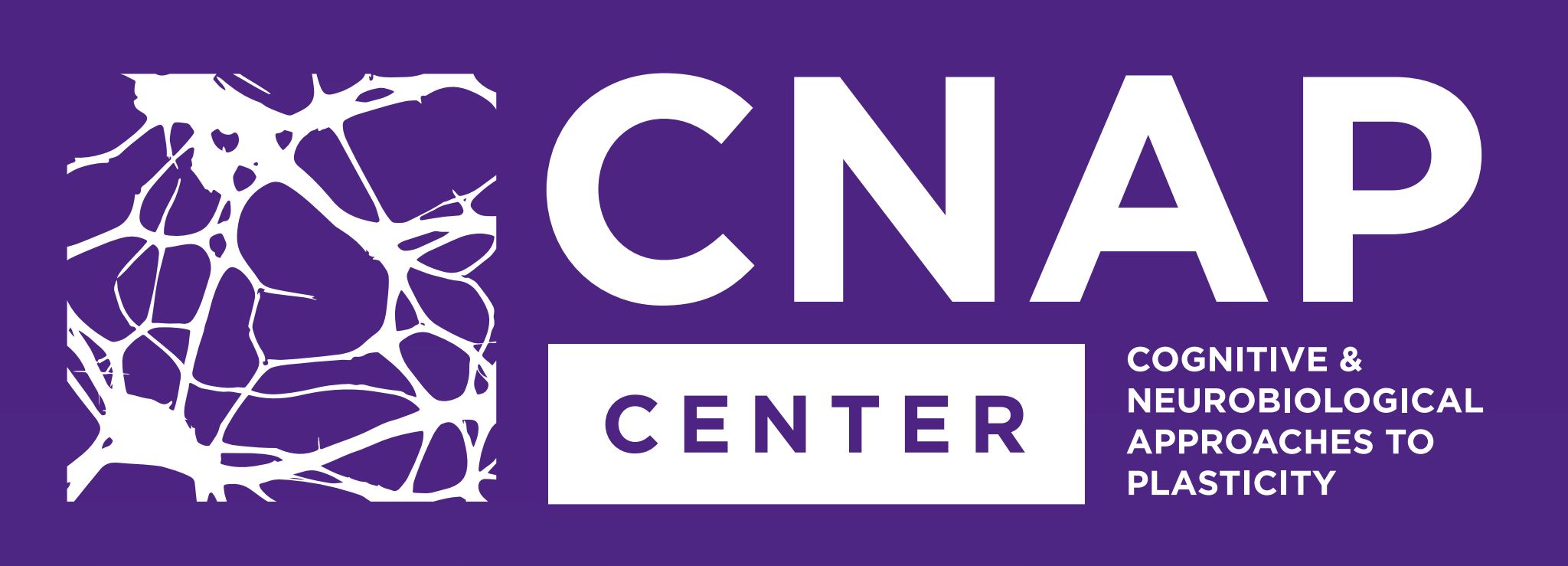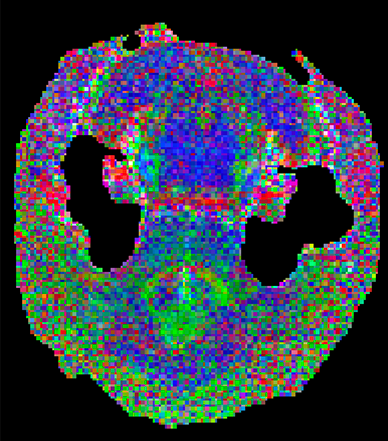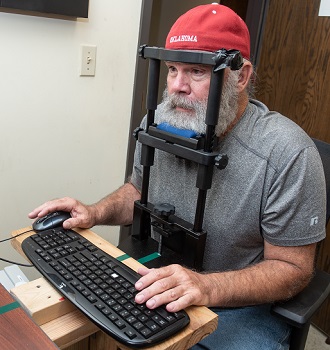About Us

The Cognitive and Neurobiological Approaches to Plasticity Center, CNAP, is a Center of Biomedical Research Excellence (COBRE) founded by Dr. Kim Kirkpatrick in 2017 through a $10.6M grant from the National Institutes of Health (NIH, P20GM113109). In July 2022, CNAP received a Phase 2 renewal, securing five more years of funding at $11.2 million. CNAP is directed by the Department of Psychological Sciences, Associate Professor Dr. Heather Bailey. Dr. Carl Ade, of the School of Health Sciences, serves as the CNAP Associate Director.
CNAP currently hosts two research projects (led by Drs. Maria Diehl and Bethany Plakke), one pilot project (led by Dr. Julio Hernandez Pavon), and three research cores—the Behavioral Neuroscience (BN) Core, Cognitive Neuroscience (CN) Core, and Neuroinformatics (NI) Core. The BN and CN Cores are housed in the Department of Psychological Sciences. The NI Core is housed in the Beocat supercomputing cluster facility at the Carl R. Ice College of Engineering. Core Directors include: BN Core- Dr. Charles Pickens, CN Core- Dr. Kari Payne, and NI Core – Dr. Doina Caragea.
A key focus of our Center is to support the development of junior investigators into independently funded investigators and to develop a critical mass of investigators who can compete for peer-reviewed extramural funding in neuroplasticity research. For more information about our Center's aims and objectives, see our overarching aims.
The Center's overarching goal is to understand the mechanisms of cognitive/neural plasticity and to promote healthy functioning. CNAP researchers achieve this by investigating plasticity in human and animal models through basic and translational research techniques.
Our Research
Plasticity refers to changes in the brain as a function of growth, aging, or experience. Plasticity is essential for adaptive behaviors and healthy functioning. The Center's overarching goal is to understand the mechanisms of cognitive/neural plasticity and to promote healthy functioning. CNAP researchers achieve this by investigating plasticity in human and animal models through basic and translational research techniques.
CNAP funds research through two- to three-year research projects and smaller pilot project grants (typically one year). Throughout Phase 1, CNAP supported five research projects and 12 pilot grants under the umbrella of neuroplasticity research. CNAP has continued this support into Phase 2. CNAP received its Phase 2 award in July 2022. Upon receipt, CNAP spent the subsequent year (year 6) setting the research cores, projects, and other Admin Core programs and services on a path to success. In Year 7, CNAP will continue funding its three primary projects, three research cores, one administrative core, and four pilot grant projects.
Research Themes
Synergy among our research programs is promoted by three cross-cutting themes that stimulate interdisciplinary connections among faculty, graduate students, and undergraduate students conducting research in relevant programs across K-State and partner institutions.
Research on the neurobiology of learning and memory will study the brain processes involved in learning and memory. Areas of focus include:
- Examining memory decline in a rodent Alzheimer's model.
- Studying the neural processes involved in social learning of avoidance behaviors in rodents.
- Examining the oscillatory brain dynamics that predict auditory memory retrieval.
This theme connects with our initial three Phase 2 research projects, all drawing support from CNAP's Cores.
The neuromodulation and assessment theme reflects the Phase 2 additions to two of our research cores, as the Behavioral Neuroscience Core will add optogenetics and electrophysiology capabilities. The Phase 1 Electroencephalography Core will evolve into the new, broader Cognitive Neuroscience Core with the addition of transcranial magnetic stimulation (TMS) and repetitive TMS (rTMS) facilities and equipment. The CNAP scientific exchange network (SEN) will also contribute to research in this area, as we have worked to develop relationships with local and regional organizations to support small animal imaging and structural and functional magnetic resonance imaging for human research participants. All three research projects connect with this theme.
 Research featuring advanced computational modeling is an area of recent growth. This theme emerged from ongoing and planned advances of the Neuroinformatics Core to incorporate machine learning and artificial intelligence models and to continue supporting other advanced computational modeling techniques. All three initial research projects will incorporate advanced modeling techniques into their research programs. In addition, the SEN will contribute to this theme through informatics connections with centers in our network. This theme is critical to the success of investigators in securing extramural funding, as grant agencies are increasingly emphasizing machine learning and other advanced modeling techniques as a priority area. We aim to put our CNAP investigators ahead of the curve in this area.
Research featuring advanced computational modeling is an area of recent growth. This theme emerged from ongoing and planned advances of the Neuroinformatics Core to incorporate machine learning and artificial intelligence models and to continue supporting other advanced computational modeling techniques. All three initial research projects will incorporate advanced modeling techniques into their research programs. In addition, the SEN will contribute to this theme through informatics connections with centers in our network. This theme is critical to the success of investigators in securing extramural funding, as grant agencies are increasingly emphasizing machine learning and other advanced modeling techniques as a priority area. We aim to put our CNAP investigators ahead of the curve in this area.
Research Accomplishments
CNAP's grant evaluation data indicate that CNAP researchers have produced 76 peer-reviewed publications and given 219 presentations at academic conferences and programs. The Center has also generated 149 grant proposals and awarded grants to CNAP-funded junior faculty, totaling nearly $10 million. You can view a list of publications produced during the first four years of our Center.
